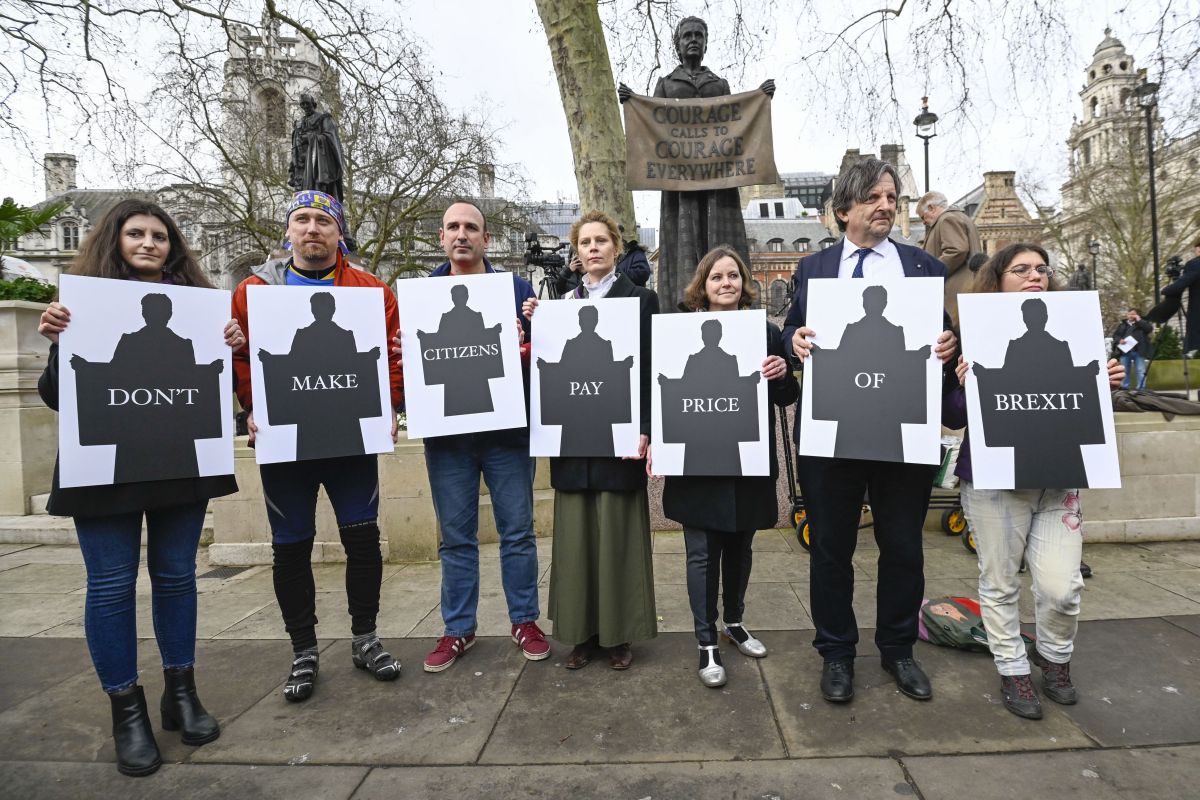A delicate balancing act
The on-going conflict in Ukraine has sent shockwaves through global energy markets, impacting everything from international relations to commodity prices.
UK Prime Minister Boris Johnson said the issue was settled with a public vote that was held in 2014 when 55 per cent rejected independence.

People hold a Brexit Day press call at Parliament Square, in London, Britain, on Jan. 31, 2020 (Photo: IANS)
A day after the UK’s exit from the European Union (EU) after 47 years of membership, tens of thousands of pro-Europe protesters took to the streets on Saturday in the Scottish capital of Edinburgh, marching against it.
“Scotland still loves EU” one banner read, as the protesters on Saturday made it clear they did not vote in favour of leaving the bloc.
In the June 2016 referendum, 62 per cent of the people in Scotland voted to remain.
Advertisement
In Saturday’s protests, participants called for a second independence referendum, something Westminster has strongly opposed.
UK Prime Minister Boris Johnson said the issue was settled with a public vote that was held in 2014 when 55 per cent rejected independence.
Scotland’s First Minister Nicola Sturgeon has argued that Brexit has brought about a completely different scenario than justifies a fresh vote.
Protesters gathered near the regional parliament building, where the sound of bagpipes could be heard along with speeches from the organizers, pro-independence group Stand Up For Scotland.
Earlier on Saturday, three Brexit deadlines came and went before the British parliament finally ratified the divorce agreement.
On Friday, PM Johnson hailed the “dawn of a new era” at 11 pm after Britain will leave the European Union (EU).
There was also a small group of about 10 people who were celebrating Brexit and Britain’s independence.
One of the protesters said, “I feel sad but we’re going to get back into Europe, Scotland has always been a part of Europe since history began we’ve always been a European nation.”
He accused Westminster of being “isolationist” adding to that he was confident there would be another referendum this year.
On Thursday, the recent survey published by YouGov that revealed the secession support was in the lead for the first time since 2015 at 51 per cent, compared to 49 per cent opposing.
The reason for the increase is likely to be the number of Scots who support EU membership and would have changed their minds in 2014 if Scottish independence allowed the country to be part of the EU.
Edinburgh, where up to 75 per cent of people supported staying in the bloc, held several events to say goodbye to its former European partners.
On Tuesday, the vote was preceded by an emotional debate of the Members of the European Parliament, who bid farewell — sometimes with words of love and warmth — to Britain’s 41-year stay in the world’s largest trading bloc.
Brexit was originally scheduled for March 29, 2019, but was repeatedly delayed when MPs rejected a previous withdrawal agreement reached by the EU and former Prime Minister Theresa May.
Johnson was able to get his own deal through Parliament after winning the December 12, 2019, general election with a House of Commons majority of 80, on a pledge to “get Brexit done”.
The UK has an option to extend the transition but Johnson refuses to, and intends to enshrine the 2020 date in legislation, PM Johnson’s office said.
Johnson was re-elected Prime Minister following his landslide victory in the December 12 general election, deemed as one the UK’s most decisive and crucial.
(With inputs from agency)
Advertisement